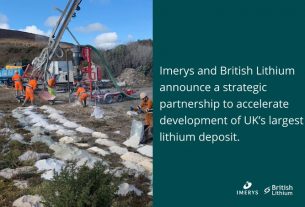In the remote landscapes of Murujuga, Western Australia, lies one of the world’s most significant cultural treasures — ancient rock art etched by Indigenous people over tens of thousands of years. These petroglyphs, including what experts believe are the earliest depictions of human faces, are now at risk due to industrial pollution from nearby gas facilities.
The debate intensifies as energy giant Woodside seeks approval to operate the Karratha Gas Plant until 2070. Environment Minister Murray Watt recently gave “proposed” approval to extend operations, subject to strict conditions on air quality. A final decision is pending Woodside’s response within a 10-day window.
Environmentalists and climate advocates have strongly opposed the extension, highlighting its potential to generate massive carbon emissions and undermine Australia’s climate goals. Pacific Island nations, who are partnering with Australia to host the 2026 COP31 climate summit, have also voiced concern. Tuvalu’s Climate Minister Maina Talia urged Australian leaders to reject fossil fuel expansion, calling it a moral issue that transcends politics.
Cultural and Environmental Significance
The Murujuga region, known for its unique rock art, holds immense historical and spiritual significance for local Indigenous communities. For years, traditional custodians like Raelene Cooper and Josie Alec have fought to protect these sacred sites from industrial encroachment.
Archaeologist Benjamin Smith, president of the International Scientific Committee for Rock Art, has described the Karratha plant extension as potentially the most critical environmental decision of this generation. He asserts that emissions of sulfur and nitrogen oxides from industrial activities are creating acid rain, gradually eroding the rock art.
Smith has criticized the Western Australian government for downplaying or disregarding findings from environmental monitoring, which confirm the damaging effects of emissions on the heritage site.
Legal and Global Implications
Cooper, representing the Murujuga people, responded to the government’s proposed approval with a firm message: “See you in court.” Legal challenges are now expected, especially as Australia’s bid for World Heritage status for Murujuga faces setbacks due to environmental degradation.
A draft recommendation from a World Heritage advisory group urged Australia to halt all acidic emissions in the area before the site can be considered for protected status. Minister Watt expressed disappointment at the draft but pledged to work with global heritage bodies to address concerns.
Woodside welcomed the proposed approval and maintained that industry and cultural heritage can coexist. The company denies that its plant emissions are harming the rock art and says it remains committed to collaborating with Indigenous organizations and government bodies.
Concerns About the Browse Gas Field
Beyond the North West Shelf project, environmental groups warn that approval could open the door to the development of Browse — Australia’s largest untapped conventional gas reserve. The project involves drilling near Scott Reef, an ancient marine ecosystem home to endangered species like pygmy blue whales and sea snakes.
Though previously rejected by environmental authorities, Woodside has revised its proposal and is reintroducing it for public consultation. Conservationists argue that the revised plans still pose unacceptable risks to the reef’s delicate habitat.
Despite high hopes of meeting future LNG demand in Asia, financial analysts are skeptical. Josh Runciman of IEEFA warns that rising costs and competition from renewables make large-scale gas projects like Browse increasingly unviable.
As discussions continue, Indigenous groups, environmentalists, and Pacific Island leaders remain united in their message: protecting cultural heritage and the climate must come before corporate profits.




